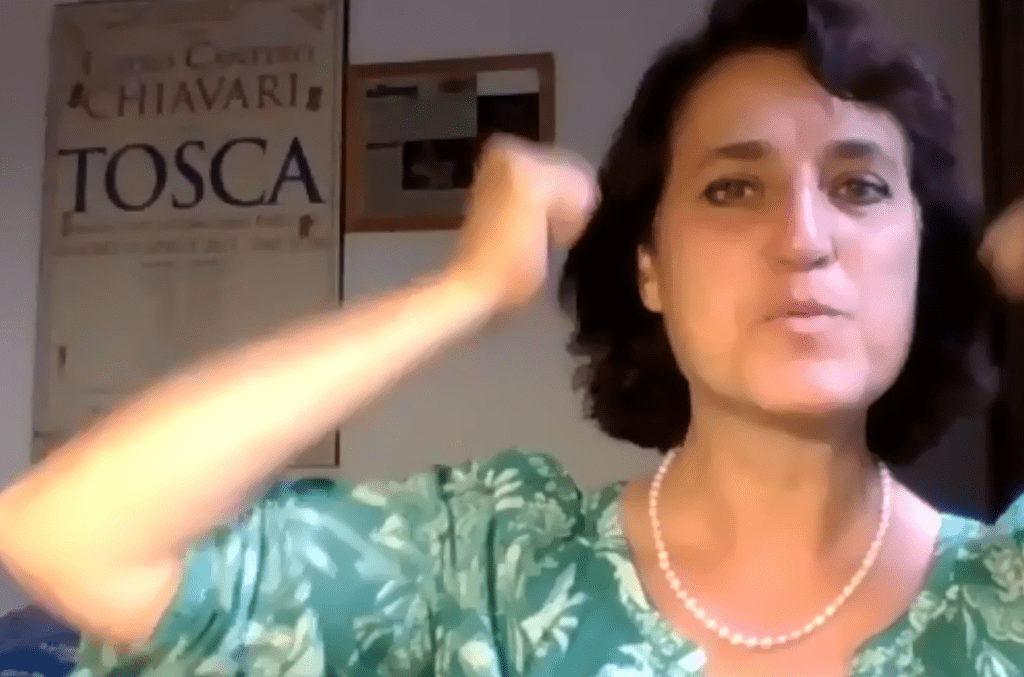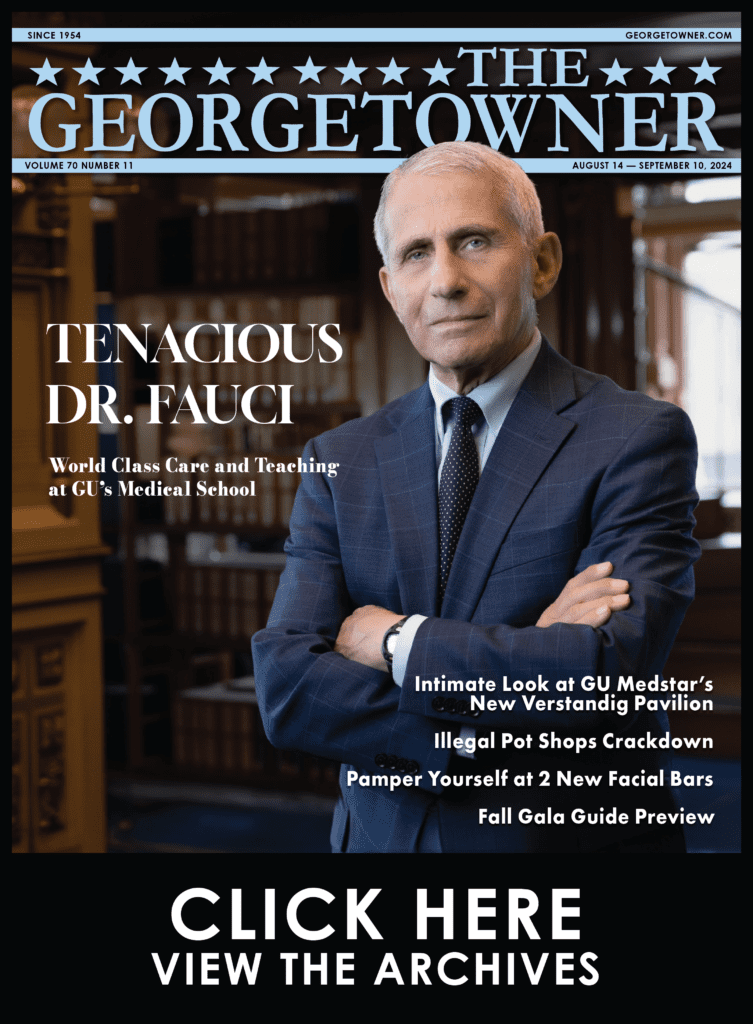Improve Your Opera Singing on Zoom? Yes, Says M Institute
By • July 23, 2020 0 2286

Last Saturday afternoon, Italian soprano Capucine Chiaudani coached six far-flung young opera singers — including one from Hungary streaming from her iPhone — as more than a dozen others watched from home. The virtual event was one of several online master classes and workshops presented by D.C.-based M Institute for the Arts as part of its New Era Voice Festival.
Among the drawbacks of conducting a vocal master class via Zoom: unaccompanied singing, audio quality less than ideal, no physical interaction between guest artist and performers. But enabling a class to assemble without regard to geographic location is a Zoom marvel. And there is no difficulty seeing or hearing the guest artist; her face fills the screen — delightfully in Chiaudani’s case.
Speaking excellent English with a strong Italian accent, Chiaudani was a living example of how, she explained, every language has its own “music.” And, because “you will sing 80 percent of your life in Italian,” she advised the budding classical singers to spend a few months in Italy. During the 20-minute individual sessions, she would often say “Brava … bravissima … bellisima!”
Chiaudani also introduced the term “appoggio,” meaning breath support, and made the performers conscious of holding the back of their neck straight while singing. This was important for all types of singers, she noted. “Freddie Mercury sang like this,” she said.
One of the performers, Franklin Espinosa, was a countertenor, trained to sing high parts typically sung by women. Wearing a white T-shirt, he delivered the aria “Vissi d’arte (I live for art)” from Puccini’s “Tosca.” While encouraging him, Chiaudani cautioned Espinosa about taking on such a familiar aria, saying that audiences “know by heart the version of [Maria] Callas.”
Though we are by now getting used to it, the variety of settings was especially odd for opera singing. Athena Christine Palombi sang — beautifully — “Che farò senza Euridice? (What shall I do without Euridice)” from Gluck’s “Orfeo ed Euridice” from her bathroom. From her curtained-off home studio, Maria Chiara Chizzoni wowed the listeners with her high soprano, performing an excerpt from “Carmina Burana” by Carl Orff.
Commenting that “your larynx will strangle you,” Chiaudani shared that as a young singer she believed she was a mezzo-soprano, only to find that proper technique unexpectedly extended her range upward.
Subtitled “Artistic Autonomy and Creative Courage for Singers,” the New Era Voice Festival continues through the end of the month. On July 25 at 4 p.m., soprano Angel Blue, who sang Bess in the Metropolitan Opera’s 2019 production of Gershwin’s “Porgy and Bess,” will lead an online master class, followed by a Q&A. For details, visit m4arts.org.

